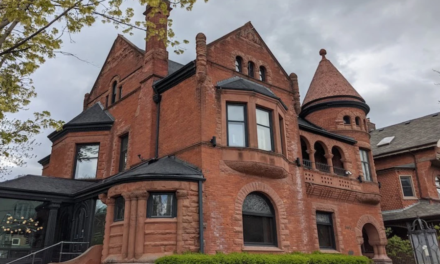In the face of surging interest rates, rising home prices, and inflation concerns, a recent survey conducted by real estate brokerage Zoocasa has unveiled a notable trend among Canadian millennials: the majority are delaying their plans to purchase a home.
Survey Findings: Postponing Homeownership
The Zoocasa survey, involving 1,600 participants, discovered that 67% of respondents have either currently deferred or recently abandoned the idea of homeownership, citing the challenging economic climate as the primary factor.
The First Home Savings Plan (FHSA): A Beacon of Hope
Despite these challenges, there is a glimmer of hope for aspiring homeowners through the First Home Savings Plan (FHSA). Introduced by the Canadian government in April, the FHSA has already attracted 150,000 Canadians.
Insights from Evelyn Jacks
Evelyn Jacks, president of the Knowledge Bureau in Winnipeg and an author of 55 tax books, emphasizes the potential benefits of the FHSA. She describes it as a “triple win,” offering a tax deduction on contributions, tax-free growth of the invested amount, and tax-free withdrawals for the purchase of a qualifying home.
FHSA Eligibility and Features
To open an FHSA, individuals must be Canadian citizens aged between 18 and 71. The plan allows annual contributions of $8,000, which are tax-deductible, with a lifetime limit of $40,000. The account can remain open for 15 years, and funds can be withdrawn tax-free for the purchase of a first home.
Synergies with Other Savings Programs
Robby Aurora, a mortgage expert with Mortgage Connection, highlights the versatility of the FHSA. It can be used in conjunction with other savings programs, such as the Home Buyers Plan (HBP) and the Tax-Free Savings Account (TFSA). By strategically combining these programs, individuals or couples can accumulate substantial funds towards a home purchase.
Overcoming Economic Challenges
Recognizing the financial strains posed by the current economic climate, the article acknowledges the difficulty of setting aside money for savings. However, it underscores the potential value of the FHSA, even if homeownership plans are delayed. Evelyn Jacks suggests that the accumulated amount in the FHSA can be transferred into an RRSP, providing additional retirement savings.
FHSA Eligibility Beyond First-Time Buyers
Importantly, even those who have owned a home before may still be eligible for the FHSA program, as long as they haven’t lived in a home owned by themselves, their common-law partner, or spouse in the past four years.
Accessing FHSA Information
Readers interested in exploring the FHSA can find more information on the federal government’s website or through their respective banks or investment dealers. The Canadian Department of Finance reports that over 150,000 Canadians have already taken advantage of the FHSA, making it a viable option for those aspiring to own a home in the future.











